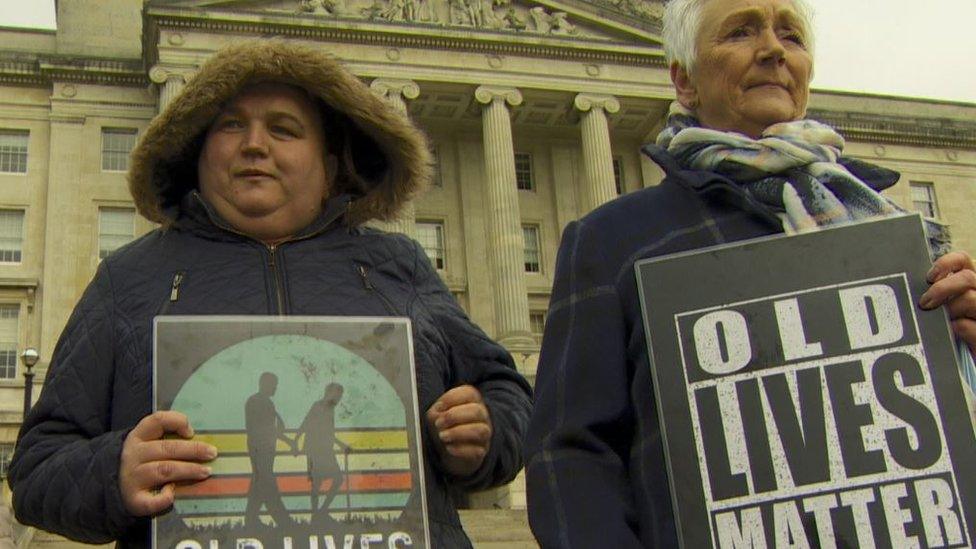Covid-19: Ex-workers describe 'panic' at care home hit by virus
- Published
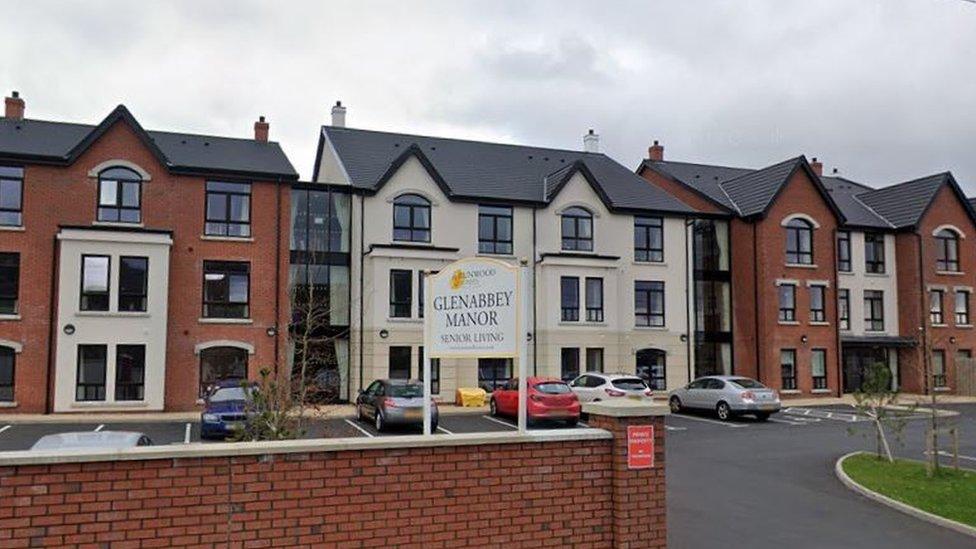
"Crazy, everybody's panicking, everybody's saying I've been near so-and-so and I've been here and I've spoken to this person and I've been in the same room as him. Just complete panic."
That is how care worker Fiona Hopkin, then 19, describes the aftermath of the first known positive Covid-19 case at Glenabbey Manor care home in April 2020.
Within weeks, 14 residents were dead - one of the worst outbreaks in a care home in Northern Ireland in the first wave of the pandemic.
Amid new calls for a public inquiry into what happened in care homes then, BBC Spotlight has been investigating what happened at Glenabbey Manor, as told by families of the residents and some of the staff who worked there.
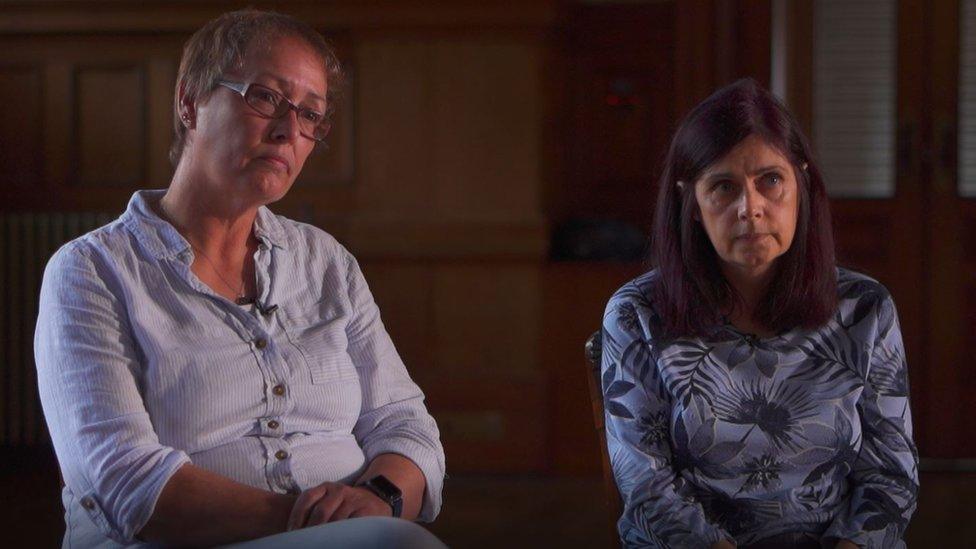
Clara Wilson and Rhonda McKeown spoke to Spotlight about their experience in Glenabbey Manor care home in 2020
Few of us will ever forget the cloud of dread hanging over the spring of 2020. The season representing renewal and hope inverted.
For staff at Glenabbey Manor, on the outskirts of north Belfast, the anxiety was magnified.
Former employees Clara Wilson and Rhonda McKeown had seen the dreadful impact Covid was already having on Spanish care homes and feared the same was coming their way.
Glenabbey had been warned by inspectors about its infection control measures the previous autumn and went into lockdown early on 13 March.
Over the next two months, almost one in every five residents of the home died from the virus.
The former staff told BBC Spotlight NI's Covid and Care: Searching for Answers programme how government guidance on mask wearing left them short of personal protective equipment (PPE) by today's standards; how they fought to get medical attention for the sick; and how they watched some residents struggling for breath as they died.
Eighteen months on, they still have questions.
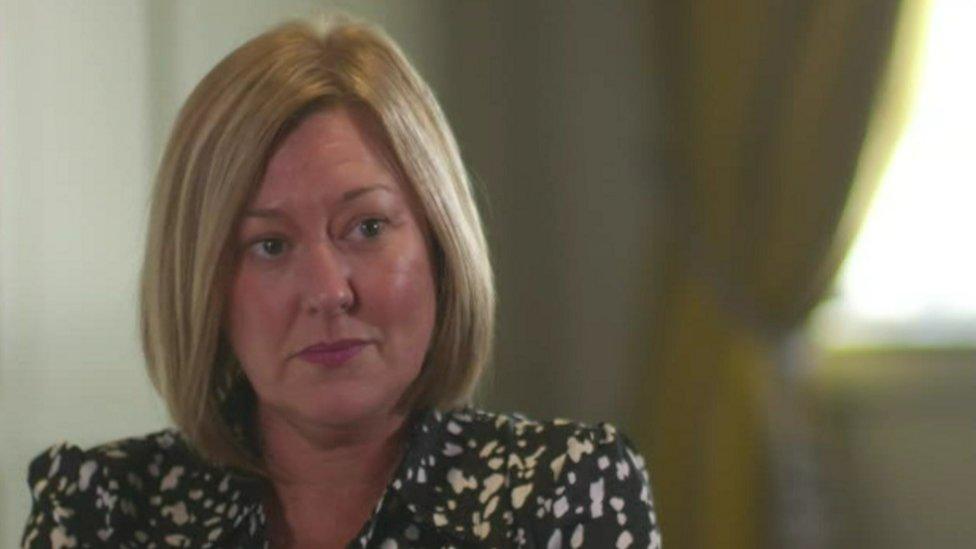
Martina Hamilton's father was a resident at Glenabbey Manor
Martina Hamilton, whose father Martin was a resident, said only seeing him on video calls at such a dark time broke her heart.
"Dad didn't really understand, he would have just maybe sat and looked at the phone.
"At least when you were in front of him, you know sometimes when you went in, you knew there was a little recollection.
"You lost all of that."
But was the home closed to all visitors?
On 25 March, just two days after the prime minister ordered people to stay at home, what appears to have been a staff social event was under way at Glenabbey - a so-called baby shower.
Those interviewed by Spotlight say they did not take part in the gathering.
Rhonda McKeown, who was working that day, said she was surprised to see the husband and child of a staff member, neither of whom worked at the home, inside the building.
In a statement issued on behalf of Glenabbey Manor, which was previously Runwood Homes, owner Kathryn Homes said: "While the gathering of staff should not have happened, it would be inappropriate to comment because of an ongoing police investigation."
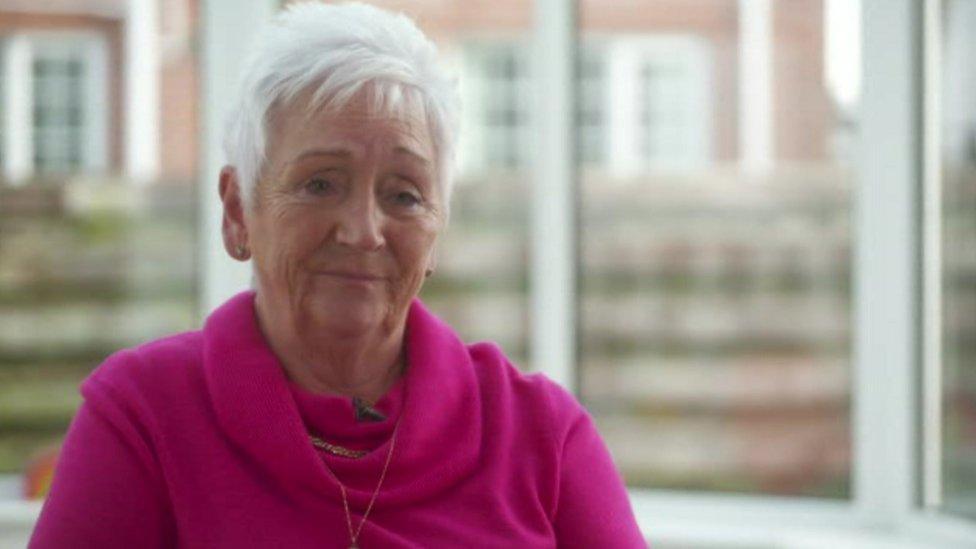
Christine Rice's mother was a resident in the home
But Spotlight understands no further action is being taken because lockdown legislation had not yet been passed by the assembly.
Christine Rice, whose mother Elizabeth Breslin was a resident at the home, later heard about the gathering on social media.
"I was absolutely livid. We were not even speaking through a window. We were waving up three floors and yet people were allowed to come in."
In April 2020, Covid was first discovered in the home.
Government policy until 19 April said those being discharged from hospital did not need to be tested for Covid.
Worsening situation
Fiona Hopkin said a man discharged without being tested from Antrim Hospital tested positive in the home soon after.
The Department of Health said studies had indicated discharges were not associated with a significant risk of a care home outbreak, though a small risk could not be ruled out.
Staff sickness exacerbated a worsening situation.
Martina Hamilton told Spotlight one of the nurses brought in from the Northern Trust to assist a depleted Glenabbey workforce thought her father's oxygen levels meant he needed to be taken to hospital.
But when a paramedic arrived, he disagreed.
Ms Hamilton said that when she arrived in the car park she witnessed a debate that lasted for hours.
"The nurse came down to the door and she cried and she said if this was my dad I'd want him to go hospital.
"The paramedic went back up again and checked him and said 'no he's fine. If I take him to A&E and I take those readings, they are going to say what are you bringing him here for? Bring him back'."
She says staff then asked her what she thought should happen. In the end, her father stayed at the home and recovered. He died earlier this year after moving to another care home.
'No knowledge of how to do it'
For those who died in the first wave at Glenabbey, "like dominoes", there was a risk of indignity, according to Clara Wilson.
She recalled holding hands with the dying while they struggled to breathe.
And the former staff say that with some funeral directors not working as normal, the dead were put into body bags dressed in whatever they were wearing to be transferred to a closed coffin.
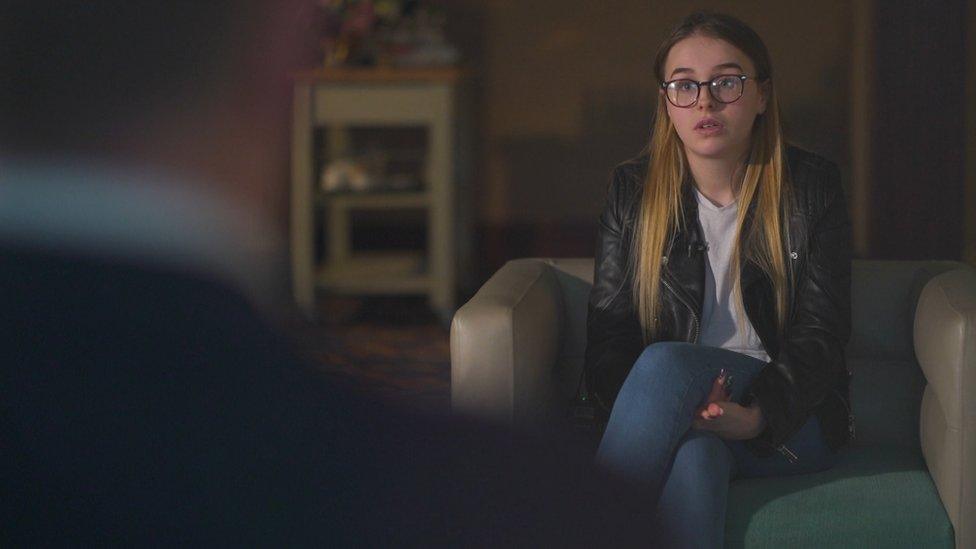
Fiona Hopkin said she only had three days training when she started in Glenabbey Manor care home
Fiona Hopkin described what happened when one resident died.
"Rigor mortis had set in and we were having to try and dress him with no knowledge of how to do it, we didn't know that if there was a set kind of way to do it.
"We tried between us to make sure that this man was ready for the sake of his daughter, we wanted to do that for her, we wanted to do that for him."
Runwood Homes said funeral directors were free to come into the home and if staff washed and dressed bodies, it was their own choice. It added that training was "robust".
All the staff and residents' families Spotlight spoke to believe only a Northern Ireland-based public inquiry will establish the role of government guidance to homes in what went wrong.
The Department of Health has said Health Minister Robin Swann wants a public inquiry as soon as is practicable.
It said the timing would have to take account of the entire health system being focused on fighting Covid and other pressures.
But Ms McKeown wants an inquiry sooner rather than later.
"If these deaths had happened in a children's home, I think there would have been an investigation a long time ago but because it's the elderly, it just seems to be pushed to the side."
Related topics
- Published24 November 2021
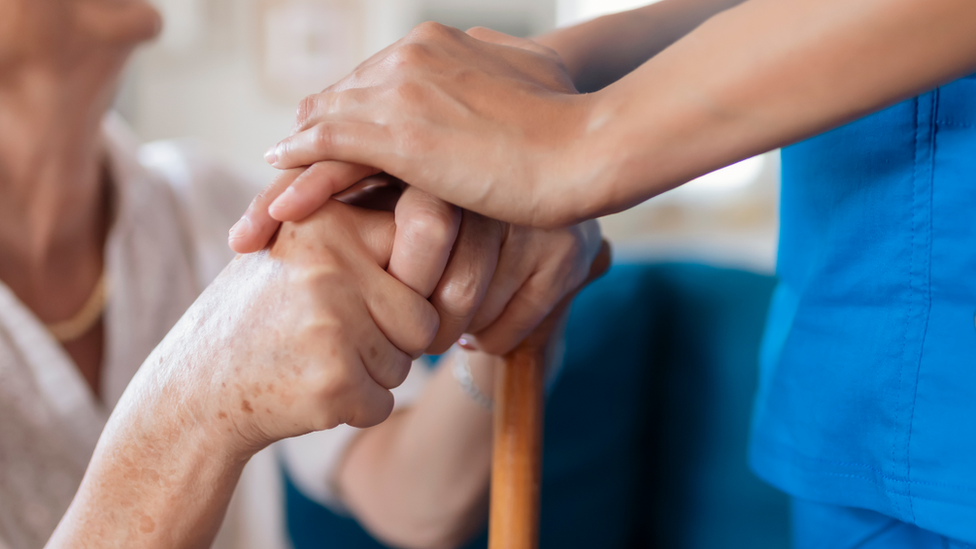
- Published23 November 2021
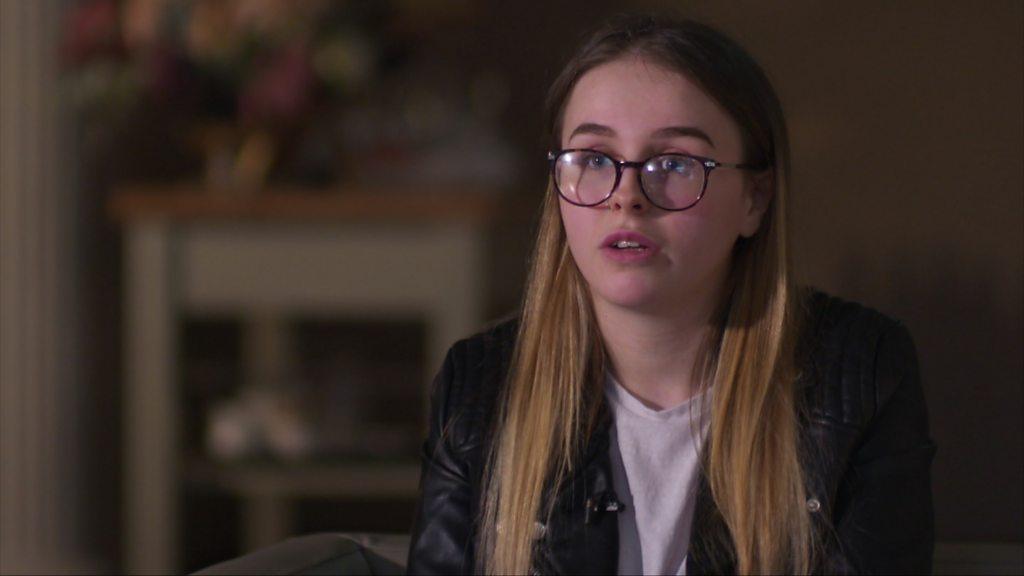
- Published20 November 2021
